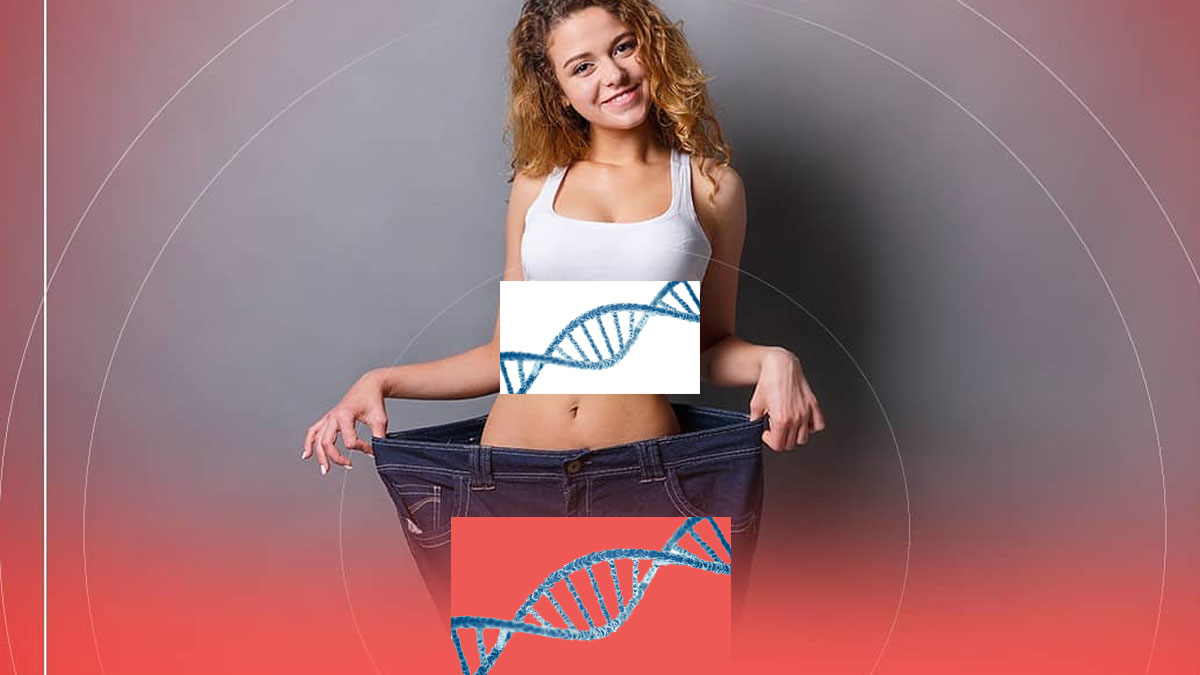In basic terms, our genetic makeup is a combination of our parents’ DNA. This leads to our inheritance of genetic traits such as eye color and height and more complex features involving multiple genes, such as being at risk for diseases like diabetes, obesity, and heart disease. Additionally, our genes affect all aspects of our metabolism.
According to research done by the Human Genome Project, there are approximately 50,000 genetic code differences that can affect how our bodies function. Furthermore, there is a significant interaction between a person’s environment and their genes.
So what does all this have to with weight loss?
Well, your diet is one of the most primary and potentially modifiable elements of your environment. This is why the field of nutrigenetics was formed. Nutrigenetics programs, like the NJ Diet, examine how our genes respond to nutrients in food and beverages. In doing so, health-care practitioners can deliver precise and effective nutrition recommendations.
Examples of Nutrient Interactions with DNA
An interesting example of a nutrient and its interaction with DNA is choline. Choline is usually found in egg yolks. However, when public health officials started to encourage people to reduce their cholesterol consumption for heart health, eggs were perceived as unhealthy. For some people reducing dietary cholesterol helped lower blood cholesterol levels. However, nutrigenetics research discovered that some people carry genetic variants that require choline. Otherwise, they are at risk of health problems such as infertility, muscle loss, and fatty liver.
Other controversial nutrients that nutrigenetics addresses include saturated fat, sodium, and vitamin D. When it comes to the positive and negative health properties of these nutrients, the research is often contradictory. Nutrigenetics posits that this is due to individual genetic variation that dictates an individual’s response, instead of a group, to these nutrients. For instance, while most experts believe that avoiding excessive saturated fat intake is healthy, the rising popularity of low-carb, high-fat, seems to be proving otherwise.
DNA and Weight Loss
The problem of obesity is complex and multifactorial. Although, we do know that there is a substantial genetic component to obesity, and dozens of genetic variants have been connected to metabolism and obesity. However, finding the variants that are most likely to respond to specific dietary interventions is problematic from both a behavioral and research perspective because diets only work when people follow them to the letter.
For example, a 2012 Harvard study discovered that a variant in the FTO gene predicted that people with this variant experienced more significant fat loss after two years when they followed a high-protein diet and less fat loss when they observed a low-protein diet. However, a 2018 Stanford study stated that they found no connection between weight loss on a low-carb versus low-fat diet based on three genetic variants. Nutrigenetics experts were undeterred. Their stance, including that of Dr. Martin Kohlmeir, president of the International Society of Nutrigenetics/Nutrigenomics, is that the Stanford investigation didn’t choose the right genetic variants and that the low-fat diet might work well with other variants.
Essentially, when we understand our specific genetic makeup, it can help determine what foods will promote weight loss and which ones will deter it. This is the basis for nutrigenetic diets.
Who Can Employ Nutrigenetics
The field of nutrigenetics is still in its early days, and a lot more needs to be learned about it. However, experts believe that there is enough evidence regarding its effectiveness to make use of it now. That being said, using genetic information to guide specific individual nutrition recommendations should only be undertaken by a trained health-care professional. Furthermore, the health care provider needs to understand how to incorporate and act on genetic information as part of several precision nutrition-related factors such as the gut microbiome, standard blood tests, and a health risk assessment. They should also understand the more recent methods of assessing nutrient metabolism.
Summary
Understanding the genetic variances of your DNA can help you lose weight by demonstrating how your genes interact with certain nutrients. As a result, you will learn what nutrients to avoid and which to include in your diet to lose weight.


